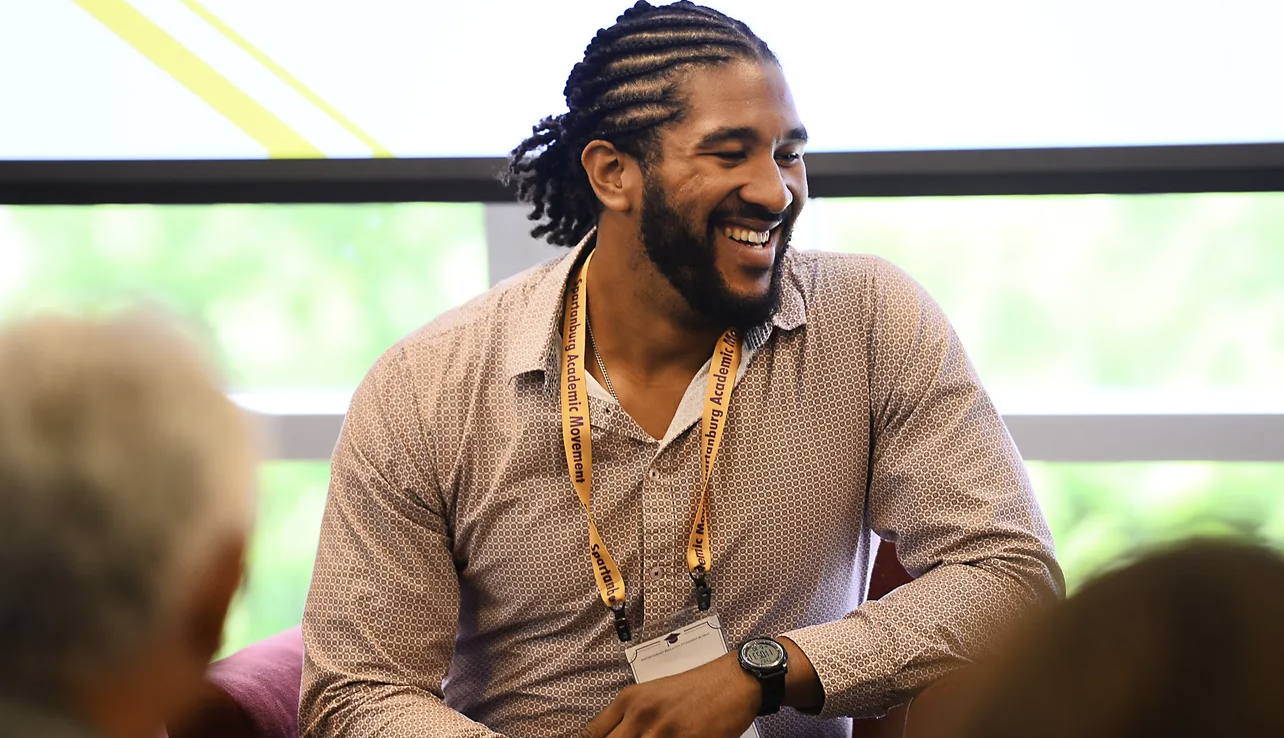Spartanburg Academic Movement (SAM) launched The Four Schools Project in 2018 to focus resources and support to address the unique factors influencing success for children living in poverty.
Two superintendents, former Spartanburg County District 7 Superintendent Russell Booker and Spartanburg County District 6 Superintendent Darryl Owings, called on SAM to drive strategies to help educators in the county’s highest poverty schools: Cleveland Academy of Leadership, Mary H. Wright Elementary School, Lone Oak Elementary School and Jesse Bobo Elementary School.
When the Four Schools Project began, those schools were collectively at a 14.66 percent proficiency rate for third grade reading. At that time, SAM set a goal to improve early grades reading proficiency to 30 percent by 2021.
In researching success models working in other communities’ facing similar challenges, empowering teachers and students with Continuous Improvement strategies was used as a strategy to increase student achievement.
Using SAM’s strong partnerships in the schools, early training in the CI methodology, also referred to as rapid PDSA (plan, do, study, act) cycles began over the spring and summer of 2018 in the four schools.
In October 2019, SC READY assessments showed that the number of students in the four schools that had met or exceeded proficiency were climbing.
COVID hit in 2020, and there was no statewide testing.
SAM announced during the Wardlaw Institute of Continuous Improvement Conference in October 2022 that the
Four Schools collectively exceeded their goal of 30 percent reading proficiency
as 32.36 percent of students are third grade proficient readers as benchmarked by SC READY testing.
For the first time in 23 years, Cleveland Academy of Leadership is no longer considered a low performing school. Cleveland Academy Principal Marquice Clarke said equity was the paradigm shift the school needed.
“When COVID hit, we thought about ways that we could take advantage of the time we had been given,” Clark said. “It allowed us time to refine our practices and gave us time to bridge to our families.”
Clarke said smaller class sizes, resources and a commitment of service has allowed Cleveland students to succeed.
“We’ve had an extraordinary amount of interventions like Americorps that has given us an additional person in the classroom for support so the teacher can focus on teaching,” he said. “They focus on reading, math and attendance support.”
Clark said he’s found that when you provide more to children who need more, you get positive results.
Jesse Bobo Elementary School Principal Catherine Pogue said her staff’s commitment to “passion, people and planning” has driven positive results.
“More than test results, we’ve built relationships and have made it a priority to get to know our students and families as individuals,” Pogue said. “The work is hard, but we’re changing kids’ lives.”
At Jesse Bobo, there is a team of coaches and support staff who dig into test scores and data to provide each student with an individualized plan for instruction and/or intervention.
Listening to the coaches talk about each student’s “recipe for success” is similar to watching scientists mix concoctions in a lab.
“We have a collective vision,” said Literacy Coach Allie Thrower. “We’re here for the children and all children matter. We’re focused on equity and standards and the best opportunities for our students.”
Coaches and teachers focus on research-based methods for reading, including understanding how the brain learns to read, and there is a renewed focus on grade-level planning.
“This team is intentionally aligned with PDSAs, and we’ve seen huge growth with SC READY, and we believe it’s because there’s accountability at all levels,” Pogue said. “The students are involved in goal setting and we have test-taking strategies. We believe we’re on the right path and we’ll continue to push so that all students are succeeding.”






